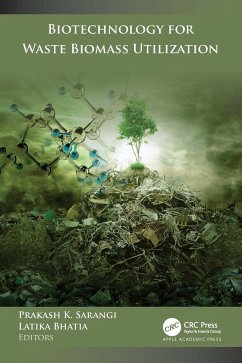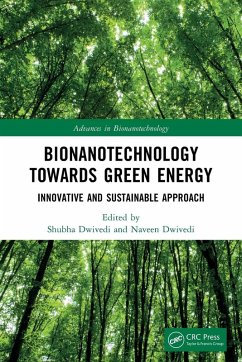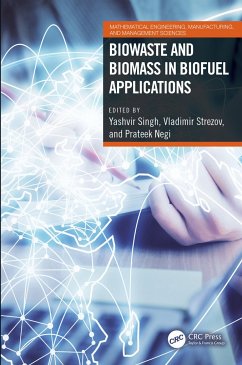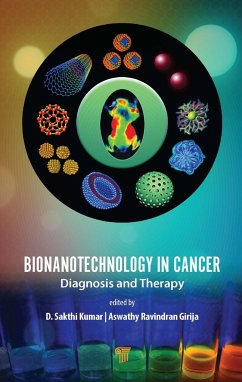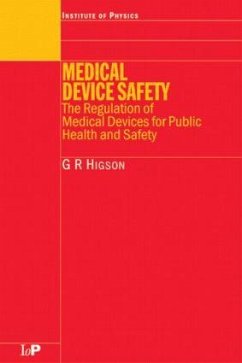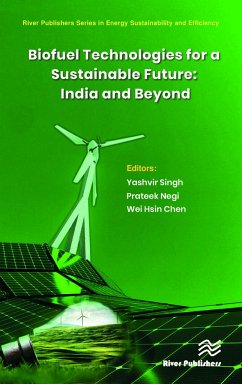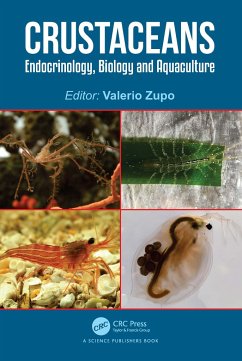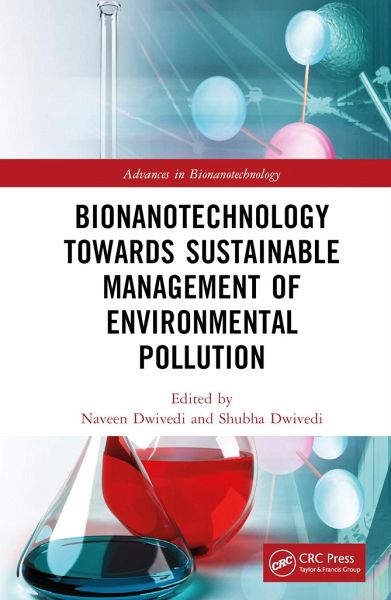
Gebundenes Buch
Bionanotechnology Towards Sustainable Management of Environmental Pollution
Versandkostenfrei!
Versandfertig in 1-2 Wochen

PAYBACK Punkte
71 °P sammeln!




This book highlights the characteristics, aims, and applications of bionanotechnology as a possible solution for sustainable management and bioremediation of environmental pollutants. It covers remediation of toxic pollutants, removal of emerging contaminants from industrial wastewater, and so forth.
Dr. Naveen Dwivedi is currently working as Professor and Head in the Department of Biotechnology at the S. D. College of Engineering and Technology, Muzaffarnagar, Uttar Pradesh, India. He obtained his M. Tech. degree in Biotechnology from Institute of Engineering & Technology, Lucknow. Dr. Dwivedi has completed his M. Tech. dissertation work from Fermentation Division of Central Drug Research Institute (CSIR-CDRI), Lucknow and Ph.D. research work from Bioenergy & Environmental Engineering Research Lab, Indian Institute of Technology Roorkee. Dr. Dwivedi is broadly interested in the fields of Environmental Biotechnology, Nanobiotechnology, Biological remediation of wastewater, Bioprocess Engineering, and Fermentation Biotechnology. Dr. Dwivedi has more than 17 years of teaching experience. He has about 50 research publications in the peer reviewed journals and conferences. He is also contributed 20 chapters in the books published by Elsevier, CRC press, AAP, Springer and Wiley publisher. He is an author of the book "Introduction to Biotechnology" published by University Science Press, New Delhi. Presently he is also engaged in editing various international repute book projects with Wiley and CRC Press. Dr. Dwivedi has received many research awards and grants for robust research interest among students. Dr. Dwivedi has delivered several invited talks and guest lectures on various topics of biotechnology, nano-biotechnology and bioenergy at different places of India and abroad. He is the member of editorial board and reviewer of several International Journals. He is the senior member of the Universal Association of Civil, Structural and Environmental Engineers (IRED), New York, USA and The Society of Chemical Industry" (SCI). Dr. Shubha Dwivedi is a researcher by profession and the Associate Professor in the Department of Biotechnology, School of Life Science and Technology, IIMT University, Meerut, India. She received her M.Sc. degree in Biochemistry from Jiwaji University, Gwalior and MBA degree from Punjab Technical University. Dr. Dwivedi has completed her M. Sc. dissertation work from Institute of Genomics and Integrative Biology (CSIR-IGIB), Delhi and Ph.D. research work from Sustainable Processing and Water Treatment Research Lab, Indian Institute of Technology Roorkee. She has got an experience of more than 16 years of teaching and research work in the area of Biochemical Engineering and Environmental Biotechnology. Her area of work has been the eco-friendly technology development for the removal of hazardous contaminants from wastewater. She has published more than 47 research papers in International journals and conference proceedings. Moreover, she has published more than a dozen book chapters with CRC Press, AAP, Wiley, Elsevier and Springer etc. Dr. Dwivedi has published one book titled on "Introduction to Biotechnology" by University science press, New Delhi. She is also engaged in three international book projects from Wiley and CRC Press. Recently, she was appointed for session lead on IPR workshop organized in RAIB-2021 at Precious Cornerstone University, Nigeria. She has chaired the session in many National and International conferences. She has been invited as keynote speaker in various institutes of national and International repute. Presently she is engaged in many international projects with various universities in terms of research exchange program, organizing workshops and conferences etc.
Produktdetails
- Advances in Bionanotechnology
- Verlag: Taylor & Francis Ltd
- Seitenzahl: 306
- Erscheinungstermin: 5. Oktober 2022
- Englisch
- Abmessung: 240mm x 161mm x 21mm
- Gewicht: 584g
- ISBN-13: 9781032220383
- ISBN-10: 1032220384
- Artikelnr.: 64105115
Herstellerkennzeichnung
Libri GmbH
Europaallee 1
36244 Bad Hersfeld
gpsr@libri.de
Für dieses Produkt wurde noch keine Bewertung abgegeben. Wir würden uns sehr freuen, wenn du die erste Bewertung schreibst!
Eine Bewertung schreiben
Eine Bewertung schreiben
Andere Kunden interessierten sich für




